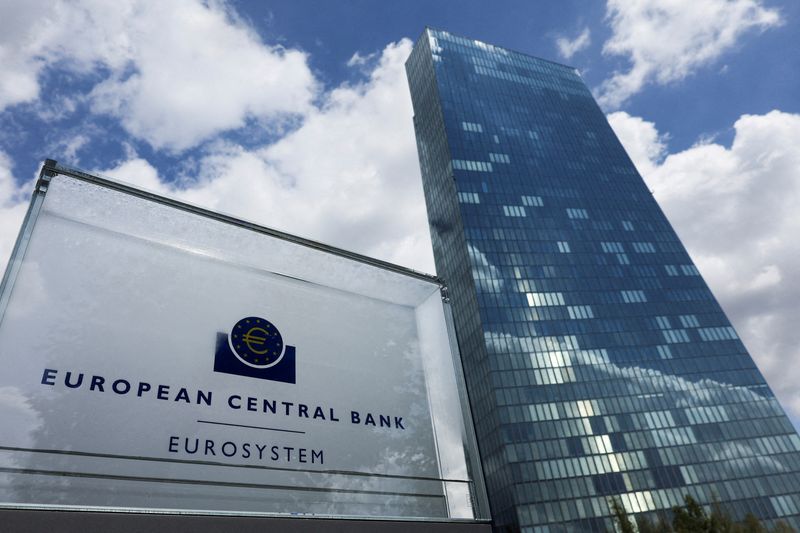Investing.com - With eurozone activity indicators surprising to the downside and concerns over inflation gradually dissipating, HSBC (LON:HSBA) sees the European Central Bank cutting interest rates faster than previously expected to support the region’s economy.
Data released earlier this week showed that eurozone business activity contracted sharply and unexpectedly this month, with the downturn appearing to be broad-based as Germany, Europe's largest economy, saw its decline deepen while France - the bloc's second biggest - returned to contraction.
HCOB's preliminary composite eurozone Purchasing Managers' Index (PMI), compiled by S&P Global, sank to 48.9 this month from August's 51.0, below the 50 mark that separates growth from contraction for the first time since February.
“The risks of a sharper slowing in activity have clearly grown,” said analysts at HSBC, in a note dated Sept. 25. “In turn, a risk-based approach to setting monetary policy might favour earlier and (at least initially) faster easing. With the deposit rate currently at 3.50%, it can probably be cut multiple times while keeping policy restrictive.”
Additionally, disinflationary news from commodities and the euro, the favorable trajectory of wages and inflation expectations, and the fact that the eurozone’s largest economies are stuttering strengthens the case for more near-term easing, the bank added.
In its September forecast, the ECB projected headline inflation below target in 2026.
A further weakening in the demand outlook could raise the risk of a more material inflation undershoot of target, HSBC said. “So even if the supply side of the economy remains weak and the labor market only cools gradually, more policymakers may be persuaded that some ‘insurance’ rate cuts might be necessary.”
HSBC now expects the ECB to cut rates by 25 bps at every meeting from October until April 2025, when the key deposit rate reaches 2.25%
“Previously we had expected cuts every other meeting until the key deposit rate hit 2.50% in September 2025.”
